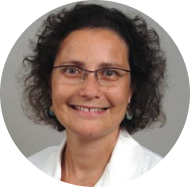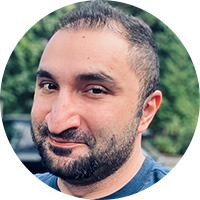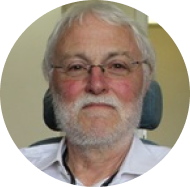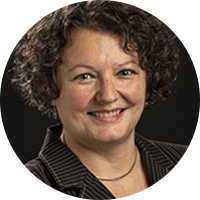Our Research Partners
Our Research Partners

Dr. Nino Ramirez
Seattle Children’s Hospital
Dr. Nino Ramirez is internationally known for his work in neuronal control of breathing. He joined the Seattle Children’s Research Institute in 2008, where he established the Center for Integrative Brain Research (CIBR). He is currently the Director of CIBR and Professor for Neurological Surgery and Pediatrics, and Adjunct Professor for Physiology and Biophysics at the University of Washington (Seattle). He serves as the Associate Director for the Center on Health Development and Disability (CHDD) at the University of Washington and is Co-Director for the Neurodevelopmental Research Consortium (NDRC).
Before coming to Seattle, he spent 12 years at the University of Chicago, where he was Chairman and Professor of the Department of Anatomy in the Pritzker School of Medicine. Professor Ramirez has published more than 100 peer-reviewed publications. He received his doctorate in Neuroscience from the University of Regensburg in Germany, and is a member of the Society of Neuroscience, the American Physiological Society and the American Epilepsy Society. He is on the Scientific Advisory Board of the International Rett Syndrome Foundation, and on the Scientific Board of the German Rett Syndrome Foundation. The Ramirez lab investigates the neuronal mechanisms that lead to a variety of neurological disorders, which provides the foundation for potential cures for breathing disorders in Rett Syndrome, sudden infant death syndrome (SIDS), epilepsy and other neurological disorders.

Dr. Edwin Mitchell
University of Auckland
Ed Mitchell qualified at St George’s Hospital Medical School in London and has worked in the UK, Zambia and New Zealand.
He is a paediatrician and from 2001 to 2015 he was the Cure Kids Professor of Child Health Research at the University of Auckland. He has published over 400 original papers, particularly on the epidemiology of asthma and sudden infant death syndrome (SIDS). He was awarded a Doctor of Science by the University of London for his work on “The Epidemiology and Prevention of SIDS” by the University of London. He has received several national and international awards for his landmark studies of SIDS. In 2009 was made a fellow of the Royal Society of New Zealand.

Juan Lavista Ferres
General Manager ( Lab Director) at Microsoft AI For Good
Juan Miguel Lavista is currently the Senior Director of Data Science for the Microsoft Data Science team (CDnA), where he works with a team of data scientists in AI, Machine Learning and statistical modeling, working across Microsoft properties. Juan joined Microsoft in 2009 to work for the Microsoft Experimentation Platform (EXP) where he designed and ran randomized control experiments across different Microsoft groups. Juan also worked as part of the Bing Data Mining team, where he led a group applying data mining, machine learning, statistical modeling and online experimentation at a large scale as well as providing data services for Bing.
Before joining Microsoft, Juan was the CTO and co-founder of alerts.com. Previously, he spent 6 years in Washington working at the InterAmerican Development Bank applying data science to understand the impact of programs for reducing poverty and inequality in Latin-America and the Caribbean. Juan has two computer science degrees from the Catholic University in Uruguay, and a graduate degree in Data Mining from Johns Hopkins University. He lives in Kirkland, WA, with his wife and two children.

Dr. Ghayda Mirzaa
Seattle Children’s Hospital
Dr. Mirzaa is a geneticist and researcher with board certifications in pediatrics, medical genetics, and molecular genetics. The goal of her research is to investigate the genetic basis of human developmental brain disorders, including brain growth abnormalities, malformations of cortical development, autism and epilepsy. Her research has led to the gene discovery for several disorders associated with brain malformations and epilepsy including the megalencephaly-polymicrogyria-polydactyly-hydrocephalus (MPPH) syndrome, the megalencephaly-capillary malformation (MCAP) syndrome, ARX- and CDKL5-related epilepsy in children, and several microcephaly syndromes, among others. Her work on focal epilepsy disorders including the PI3K-AKT-MTOR related disorders has led to the identification of several genes within this pathway that cause brain overgrowth and focal cortical dysplasia. Her research focuses on identifying the molecular and cellular abnormalities of developmental brain disorders in affected human neurological tissues, with a special emphasis on the detection of low frequency genetic variation and pathway dysregulation using high throughput genomic, transcriptomic, and proteomic methods to facilitate molecularly targeted therapeutic trials.

Dr. Kimberly Aldinger
Dr. Aldinger is a developmental neurogeneticist investigating normal brain development and the impact of genetic and non-genetic changes that lead to neurodevelopmental disorders. She received her BA in biology from Brandeis University and her ALM in psychology from Harvard University, while working at The Broad Institute. She then completed a PhD in neurobiology as an Autism Speaks Predoctoral Fellow at The University of Chicago where she discovered a novel genetic mechanism for cerebellar malformations.
Dr. Aldinger’s postdoctoral work at the University of Southern California and Seattle Children’s Research Institute (SCRI) used genomic approaches to investigate the biology of neurodevelopmental disorders, with an emphasis on autism, epilepsy, Rett syndrome and cerebellar malformations. Dr. Aldinger currently applies her expertise in neurobiology and genomics to investigate the molecular and cellular diversity underlying typical and atypical brain development in order to improve the health and well-being of children.

Dr. Rachel Moon
University of Virginia
Rachel Moon is the Division Head of General Pediatrics and SIDS researcher at the University of Virginia. She received her medical degree from Emory University and completed her pediatric residency at the Children’s Hospital of Philadelphia. She is Division Head of General Pediatrics and Professor of Pediatrics at the University of Virginia School of Medicine. Her research centers on SIDS and SIDS risk factors, particularly in high risk populations, such as African-Americans and infants attending child care. She is Chair of the American Academy of Pediatrics’ Task Force on SIDS and associate editor for the journal Pediatrics.

Dr. Marta Cohen
Marta Cohen is a Paediatric and Perinatal Pathologist at Sheffield Children’s Hospital and Honorary Senior Lecturer at the University of Sheffield, UK. She holds the following degrees: MD, FRCPath, Diploma in Medical Jurisprudence (Pathology) and a Diploma in Medical Education.
Past President of the International Paediatric Pathology Association (2014-2016), she is the Course Director of IPPA Advanced Course (2014-2018), Member of the Paediatric Pathololgy Society; Former Chair of the Paediatric Pathology Group of the European Society of Pathology (2011-2014), Training Program Director of the Giordano Fellowship in Paediatric and Perinatal Pathology of the European Society of pathology (2015-) and Board member of the International Society for the Study and Prevention of Perinatal and Infant Death (2016-).
She was distinguished as a Sheffield Ambassador by the Marketing Sheffield Program in 2016. Sheffield’s Conference Ambassador Programme is a city-wide initiative which has now been running for over 10 years. Working in partnership with the city’s academics, medical specialists and experts from industry sectors, the initiative helps attracting major national and international conferences to Sheffield.

Dr. Tatiana Anderson
University of Washington
Tatiana Anderson obtained her PhD in Neuroscience from the University of Washington in early 2017. Her research was completed at the Center for Integrative Brain Research at Seattle Children’s Research Institute and funded by the Ruth L. Kirschstein National Research Service Award through the National Institutes of Health. Tatiana’s graduate work focused on the discovery of a new area in the brainstem responsible for a phase of breathing called postinspiration, which ultimately culminated in a publication in Nature. She is now serving as a liaison between Seattle Children’s and Microsoft and helping to author and publish manuscripts from data generated by cutting-edge data analyses. She is working toward the common goal of identifying risk factors for SIDS and disseminating the data to help clinicians identify and educate parents whose child may be at risk.

Dr. Fern Hauck
University of Virginia
Dr. Fern R. Hauck is the Spencer P. Bass, MD Twenty-First Century Professor of Family Medicine and Professor of Public Health Sciences at the University of Virginia. Dr. Hauck’s medical degree is from St. Louis University School of Medicine and her residency training was conducted at the Maine-Dartmouth Family Medicine Residency. She received postgraduate research and health policy training through the Robert Wood Johnson Foundation Family Practice Faculty Development and Research Fellowship at Case Western Reserve University School of Medicine, the Centers for Disease Control and Prevention’s EIS (Epidemic Intelligence Service) Program, and as Senior Scholar in Residence at the Agency for Healthcare Research and Quality, Center for Primary Care Research. Dr. Hauck’s research has focused on risk factors and protective factors for SIDS and other causes of sudden infant death, including pacifier use, infant sleep location including bed sharing, and infant feeding. She is particularly interested in research and education interventions that aim to eliminate racial-ethnic disparities. Dr. Hauck serves as an advisor to numerous federal agencies and SIDS organizations to assist in SIDS and infant mortality related projects and she is a member of the American Academy of Pediatrics Task Force on SIDS. She is the co-author of a parenting guide, “14 Ways to Protect Your Baby from SIDS.”

Dr. Barbara Ostfeld
Rutgers
Dr. Barbara M. Ostfeld is a professor in the Department of Pediatrics at Rutgers Robert Wood Johnson Medical School and Program Director of the SIDS Center which she helped establish 1987 with funding from the New Jersey Department of Health. She has helped develop many public health initiatives that have been associated with improvements in infant morbidity and mortality in New Jersey. A member of the Division of Neonatology for over 40 years, she served until recently as program director of the high risk Infant follow-up program and includes the preterm infant among her research interests. Her research on SIDS contributed to the safe sleep policy statements of the American Academy of Pediatrics. Dr. Ostfeld has received external support for her research and preventive education initiatives. She served on the national Expert Leadership Group of the MCH National Action Partnership to Promote Safe Sleep and educates extensively on risk reduction. Dr. Ostfeld taught healthcare providers and clergy about meeting the needs of bereaved families and provided clinical services to families facing the loss of an infant. Dr. Ostfeld is a graduate of New York University (BA – Psychology; elected to Phi Beta Kappa), received her Masters and Doctoral degrees in Developmental Psychology from Rutgers University, and obtained postdoctoral training from Children’s Psychiatric Center. She is a member of Sigma Xi, the national research honor society. Dr. Ostfeld credits her 7 grandchildren with maintaining her commitment to infant health and safety.

Dr. Thomas Hegyi
Rutgers
Dr. Thomas Hegyi is the Program Director of the Division of Neonatology, Professor and Vice Chair of Pediatrics at Robert Wood Johnson Medical School at Rutgers University and Medical Director of the SIDS Center for the State of New Jersey. He has practiced pediatrics, specializing in high-risk newborn care and conducting research on topics related to newborn health, illness and death. He was Director of the Division of Neonatology of the Department of Pediatrics of Robert Wood Johnson Medical School for over two decades. His research interests include morbidities of the premature infant (particularly intraventricular hemorrhage, apnea, and pulmonary issues), neonatal jaundice, late preterm birth, and SIDS. He has published extensively in these areas and has secured external funding support for much of this research.
Dr. Hegyi received his undergraduate degree from Columbia University and his medical training at Albert Einstein College of Medicine in New York. His residency in Pediatrics was at Einstein and his fellowship in Neonatal-Perinatal Medicine at Columbia College of Physicians and Surgeons.

Dr. Kelty Allen
Kelty Allen is a mathematician-turned-data-scientist with years of experience in machine learning and statistics. She completed her PhD in Logic and the Methodology of Science at UC Berkeley in 2014 before becoming a data scientist. Her career includes several years at Microsoft, where she focused on machine learning and natural language processing problems across many Microsoft products and also collaborated with the Seattle Children’s Hospital on statistical research on the epidemiology of SUID. Kelty is currently a data scientist at Stripe working on detecting and preventing credit card fraud, and a volunteer data scientist working with the Aaron Matthew SIDS Research Guild in pursuit of the goal that no parent ever again experiences the loss of a child to SIDS.

Dr. Erdal Cosgun
Erdal Cosgun graduated from the Department of Statistics, Faculty of Science at Hacettepe University in 2007. He started his Ph.D. research as a research assistant at the Department of Biostatistics of the same university. He worked in the Section on Statistical Genetics, Department of Biostatistics at the University of Alabama in Birmingham for 6 months in 2009. He received a 3-month bioinformatics training at the R&D Campus at Pfizer Inc. and received a full scholarship from the company in 2011. After finishing his Ph.D., he worked as an Asst. Prof. at Acıbadem University, Faculty of Medicine, Department of Biostatistics and Medical Informatics as Head of the Department. He has published over 40 original scientific papers and several presentations at conferences, particularly focused on statistical genetics and genomics data science. He joined Microsoft as a Global Black Belt-TSP on Advanced Analytics in 2015. He was responsible for Machine Learning operations across the MEA region. He has been working at Microsoft Genomics since December 2016 as a Senior Data and Applied Scientist. He is also an ‘Associate Professor of Biostatistics’ affiliated with Council of Higher Education in Turkey and Biostatistics editor of the Turkish Journal of Biochemistry (SCI).

Dr. Xiaohan Yan
Xiaohan Yan obtained his PhD in Statistics from Cornell University in 2018. His graduate research centered on developing novel convex optimization models to solve structured feature selection problems in high dimensions. He is currently working as a Data Scientist at Azure, building analytics tools for large-scale cloud infrastructure. While working at Microsoft, he volunteered to provide statistical consulting for SIDS related research projects, including geographic variation and the risk of high altitude for SIDS in the US.

Dr. Michael Goodstein
Cribs for Kids
Michael Goodstein is a board-certified neonatologist from York, PA. He did both a residency in pediatrics and a fellowship in Neonatal-Perinatal Medicine at Temple University/St. Christopher’s Hospital for Children. Dr. Goodstein has been an attending neonatologist for 26 years at York Hospital for the WellSpan Medical Group and he is division chief of newborn medicine. He is also a Clinical Associate Professor of Pediatrics at the College of Medicine of The Pennsylvania State University. He established the York County Cribs for Kids Program and has been its director since 2003. He is a board member of the National Cribs for Kids® Program and is conference chairman for their biennial national infant safe sleep conferences. He has been a member of the Expert Leadership Group for the National Action Partnership to Promote Safe Sleep (2014-2017) and a safe sleep content advisor for the Infant Mortality Collaborative Improvement and Innovation Network (CoIIN) (2015-current). He is currently Faculty Co-Chair of the Expert Advisory Committee for the NAPPSS-IIN (NICHQ, HRSA). Dr. Goodstein has been a member of the AAP Task Force on SIDS since 2010.

Deborah Robinson
Infant Death Specialist with over 25 years’ of experience and expertise, Ms. Deborah Robinson is uniquely qualified as a national content expert on infant death scene investigations. Recognized for her state and national contributions, Ms. Robinson began participating in 2004 on a Center for Disease Control working group developing national investigation guidelines on sudden and unexplained infant death. The eventual result was the SUIDI (Sudden Unexplained Infant Death Investigation) reporting form. Ms. Robinson assisted in the development of training curricula and materials for use with the SUIDI reporting form, and currently promotes its use through appropriate state and local organizations. She also participated in the first national training academy for Sudden Unexplained Infant Deaths and continues to provide training assistance to this group.
Ms. Robinson’s participation on task forces in Washington State include work in the following areas: standardization of infant death scene investigation guidelines, revision of training curricula for first responders, advocacy for the continuation of Child Death Review in King County, expert child death review testimony for cases in King and other counties, and staff support for SIDS research efforts at the University of Washington. To date Ms. Robinson has instructed over 6000 investigators Sudden Infant Death Investigations and is published in the Journal of Forensic Sciences.
Ms. Robinson is a, long-term SIDS Foundation of Washington volunteer and Board member, and was on staff for over 18 years as the infant death investigation specialist and Interim Executive Director. As a member of her local Child Death Review teams, she also serves in a national capacity as a project specialist. A former deputy sheriff, and honorably discharged from the United States Marine Corps, Ms. Robinson is coursed in the Basic and Master’s level of Medicolegal Death Investigations and is currently under contract with the Washington State Criminal Justice Training Commission for infant death investigation education and curriculum development.

Dr. Peter Blair
University of Bristol
Peter has a background in Medical Statistics and a particular interest in infant and childhood epidemiology. Born in Manchester, England, he studied Mathematics (BSc Hons) and Medical Statistics (MSc) before moving to Bristol where he completed his doctorate (Epidemiology of Sudden Infant Death Syndrome) in 1997. From his work on several major observational studies he is a recognised expert in the SIDS field and was made an honorary fellow and advisor to UNICEF (UK) in 2009. In 2014 the Queen’s Annual Prize for Further and Higher Education was awarded to the University of Bristol based on Peter and his colleague Peter Fleming’s contributions in this field. He is the elected Chair of the International Society for the Study and Prevention of Perinatal and Infant Death (ISPID) and chair of the epidemiological working group. He is also a senior consultant methodologist for both the University of Bristol Randomised Trials Collaboration Unit and the NIHR Research Design Service. He lives with his partner Helen and two sons, Jacob & Sam, aged 17 and 20 years.

Dr. Peter Fleming
University of Bristol
After undergraduate training in Bristol and postgraduate training in pediatrics at the Hospital for Sick Children, Great Ormond Street, London, and the Hospital for Sick Children, Toronto, I returned to Bristol. From 1978 – 2012 I worked in the Neonatal Intensive Care Unit at St Michaels Hospital and the Children’s Sleep and Developmental Physiology Laboratory at Bristol Children’s Hospital, and also led the service for children on long term ventilatory support for the Southwest of England.

Dr. Trina Salm Ward
University of Wisconsin-Milwaukee
Dr. Trina Salm Ward is an Associate Professor of Social Work at the University of Wisconsin-Milwaukee Helen Bader School of Social Welfare. She studies the context of infant sleep and parental decision-making about infant sleep practices. She also studies approaches to safe infant sleep education, including group sessions, home visiting, and hospital-based interventions. She has published journal articles and book chapters on topics such as infant sleep practices and interventions, infant and maternal health, and public health social work in journals such as the American Journal of Public Health, Maternal and Child Health Journal, Journal of Community Health, Archives of Women’s Mental Health, and Health Education and Behavior.
Prior to joining the faculty of the University of Wisconsin-Milwaukee, Dr. Salm Ward was an Assistant Professor at the University of Georgia jointly appointed in the College of Public Health and School of Social Work where she also coordinated the MSW MPH dual degree program. Dr. Salm Ward earned a BA in Psychology from St. Norbert College. She earned a MSW with a concentration in family and children and an interdisciplinary PhD in Health Sciences from the University of Wisconsin-Milwaukee.


